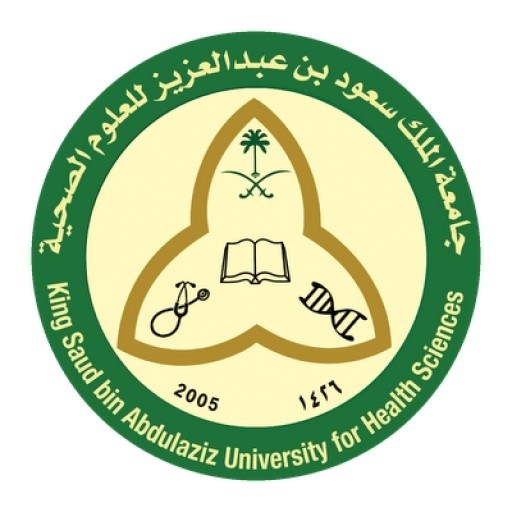Photos of university / #king_saud_university
The Bachelor of Science in Computer Engineering at King Saud University is a comprehensive undergraduate program designed to equip students with a solid foundation in both hardware and software aspects of computing. This program aims to develop graduates who are well-versed in designing, analyzing, and implementing integrated hardware and software systems, preparing them for diverse careers in the rapidly evolving field of technology. The curriculum combines theoretical principles with practical applications, ensuring students acquire critical thinking, problem-solving, and innovative skills essential for modern engineering challenges. Throughout the program, students are introduced to core topics such as digital logic design, computer architecture, embedded systems, programming languages, algorithms, data structures, and operating systems. They also explore specialized courses in areas like computer networks, cybersecurity, software engineering, and automation. The program emphasizes laboratory work, project development, and internships to provide real-world experience and foster industry readiness. Faculty members are experienced professionals and researchers committed to delivering high-quality education and mentoring students towards academic and professional excellence. The Computer Engineering program at King Saud University also promotes research activities, encouraging students to participate in innovative projects and contribute to advancements in technology. Graduates from this program are prepared for careers in various sectors including information technology, telecommunications, automation, robotics, and software development. They are also equipped for postgraduate studies and research opportunities in computer engineering and related fields. By the end of their studies, students will have acquired the technical expertise, ethical understanding, and communication skills necessary to excel in a competitive global market and contribute effectively to technological development within Saudi Arabia and internationally.
Compulsory Courses
- Advanced Computer Architecture
- Computer Networks
- Digital Signal Processing
- Seminar
- Directed Studies
- Thesis
The student is required to take a course from the set (Tools) (3 Credits)
- Simulation and Modeling
- Stochastic Processes
- Scientific Computing
- Intelligent Systems
Tracks
Group A (Computer Architecture)
- Computer Arithmetic
- Parallel Computing
- Processor Design
Group B (Computer Networks)
- Mobile Computing and Wireless networks
- Performance Analysis of Computer Networks
- Wireless Sensor Networks
- Network Security
Group C (Signals & Systems)
- Digital Image Processing
- Digital Speech Processing
- Mobile Robots
Requirements
- Have a bachelor degree from an accredited institution.
- Pass the exam and interview
- Obtain a minimum score on TOEFL or IELTS. Internet-based TOEFL 61, Computer-based TOEFL 173, Paper-based TOEFL 500, IELTS 6
- Proving a good conduct and being medically fit.
- Submitting two academic recommendations from professors who have taught applicant.
- Employer's approval, if applicant is an employee; in very limited circumstances this approval may be postponed until enrollment into courses.
The Computer Engineering programme at King Saud University primarily offers its degree through public funding, as it is a government university in Saudi Arabia. The majority of students benefit from the state-funded system, which covers tuition fees, access to campus facilities, and support services. Undergraduate students enrolled in the Computer Engineering program typically do not pay tuition fees directly, as higher education in Saudi Arabia is subsidized by the government, aiming to promote technological advancement and develop skilled professionals in the field of engineering and technology.
Students can also access various financial aid options, including scholarships and grants for outstanding academic performance, participation in research projects, or involvement in university activities. These scholarships may be provided by the Ministry of Education or other government agencies to support students economically and encourage higher achievement. International students, if admitted, may have different financial arrangements, often requiring self-funding unless they qualify for specific scholarship programs.
The university also encourages students to seek external funding for research or advanced studies through partnerships with industry and research institutions. Funding for research projects is often provided by government grants, industry collaborations, or international organizations that support scientific and technological innovation. Additionally, some students may opt for part-time work opportunities within the university or related industry sectors to help cover living expenses and personal costs during their studies.
Overall, the financing structure for the Computer Engineering program at King Saud University emphasizes government support, scholarships, and research funding. There are minimal direct costs for students enrolled at the undergraduate level due to widespread subsidies. However, international students or those involved in specialized research may seek additional funding sources to support their educational and research activities.
The Bachelor of Science in Computer Engineering at King Saud University is a comprehensive program designed to equip students with a solid foundation in both computer science and electrical engineering principles. The curriculum emphasizes the development of technical skills necessary for designing, analyzing, and implementing computer hardware and software systems. Students are introduced to core topics such as programming, data structures, algorithms, computer architecture, digital logic, embedded systems, and software engineering. Additionally, the program covers areas like telecommunications, network systems, and computer security, preparing graduates to meet the evolving demands of the technology sector.
Throughout the program, students engage in practical laboratory work, projects, and internships that enable them to apply theoretical knowledge to real-world challenges. The faculty consists of highly qualified researchers and practitioners who ensure that the curriculum remains aligned with current industry standards and technological advancements. The department promotes research activities, encouraging students to participate in innovative projects and collaborative research initiatives.
King Saud University's computer engineering program is accredited by the Saudi Ministry of Education and follows international standards to ensure quality education. Graduates of this program are prepared for careers in various sectors, including information technology, telecommunications, software development, hardware design, and systems analysis. They can also pursue postgraduate studies or engage in research roles within academia or industry. The program aims to develop problem-solving skills, critical thinking, and lifelong learning habits to enable students to adapt to technological changes and contribute effectively to their professions.
Furthermore, the university fosters a comprehensive learning environment with modern laboratories, advanced computing resources, and industry partnerships, providing students with opportunities for experiential learning. Career services at King Saud University assist graduates in securing employment or further academic pursuits by connecting them with leading organizations and research centers. Overall, the Computer Engineering program at King Saud University prepares students to become competent professionals capable of innovating and leading in the digital age.

